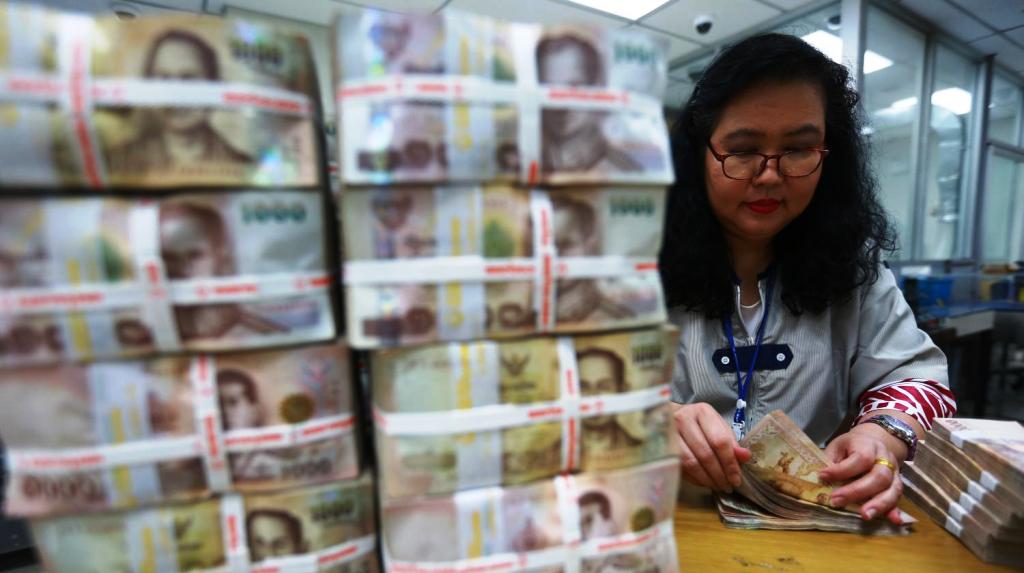Prime Minister Paetongtarn Shinawatra has called on the Bank of Thailand (BoT) and the International Monetary Fund (IMF) to lower interest rates, stating that this would help ease financial pressures on the public.
Speaking at the “Matichon Leadership Forum 2025 Trust Thailand,” she noted that Thailand’s economy began to recover late last year. Growth reached 2.5%, slightly exceeding the 2% target set for 2023.
According to Paetongtarn, the recovery was largely driven by government policies to boost the economy. These included measures that encouraged consumer spending and increased tourist arrivals, supported by the expansion of visa-free entry.
The government expects the economy to grow by 3% this year, driven by increased private-sector investment, higher consumer spending, and the implementation of several state-funded projects.
However, Paetongtarn acknowledged that Thailand’s economic growth still lags behind that of other countries in the region. She attributed this to limited industrial investment and liquidity issues caused by high interest rates.
Bank of Thailand Rate Cut
She explained that commercial banks have been cautious about lending, creating a funding shortage that has hit small—and medium-sized enterprises (SMEs) particularly hard. SMEs make up approximately 75% of the country’s businesses.
“The lack of funding access is holding back growth for SMEs, which is now impacting other sectors as well,” she said.
She urged commercial banks to increase lending to address this and called on the BoT to lower interest rates. A rate cut, she added, could also provide relief to households struggling with everyday expenses.
She argued that reducing rates would not harm the economy, as inflation remains low.
During the forum, the prime minister outlined several Pheu Thai Party initiatives aimed at helping businesses and households manage debt. One such program, the “Khun Su, Rao Chuay” scheme, helps individuals with mortgage, car, and SME loan repayments.
She highlighted that her administration and the previous one under Srettha Thavisin have helped 830,000 borrowers settle their debts. The government plans to assist an additional 260,000 borrowers and has tasked the Finance Ministry with negotiating with the BoT to improve financial access.
Paetongtarn also pointed to progress in attracting foreign investment, crediting efforts under the Srettha administration for a 35% increase in investment, amounting to roughly 1.14 trillion baht, or 5% of GDP. Her government is channelling this investment into the economy and adding incentives for key industries.
Pressure from IMF
Meanwhile, the International Monetary Fund (IMF) backed the idea of a further rate cut, saying it would help manage inflation and improve borrowers’ ability to repay debt. The IMF noted that tight lending conditions would likely limit any risks of excessive borrowing, even with lower rates.
The IMF emphasized the importance of central bank independence and clear communication to maintain credibility and stabilize inflation expectations.
In December, the BoT held its policy rate at 2.25% after cutting it by a quarter-point in October. Last month, the central bank governor told Reuters that the current rate was appropriate, given high household debt levels, even though economic growth could fall below 2.9% this year.
The next policy review is set for February 26.
The IMF continues to project Thailand’s economic growth at 2.9% this year, consistent with its November forecast. Thailand’s economy, Southeast Asia’s second-largest, grew by 2.5% last year, falling behind other countries in the region.
Related News:
Bank of Thailand Works to Tackle Nation’s Debt Crisis

Geoff Thomas is an award winning journalist known for his sharp insights and no-nonsense reporting style. Over the years he has worked for Reuters and the Canadian Press covering everything from political scandals to human interest stories. He brings a clear and direct approach to his work.














